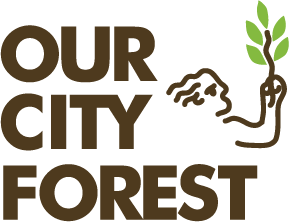California and much of the world is experiencing the direct effects of climate change in the form of extreme weather variability, prolonged droughts and fire seasons, an increase of invasive species encroachment, and much more. Often times it may be easy to dwell on the momentous task in front of us. Mitigating the worst-case climate scenarios can seem so unattainable that many people may just choose to simply do nothing. Yet, there are simple tasks we can do in our daily lives that will have profound and exponential results in our fight against climate change. One such example is composting.
Composting is something we are all familiar with. Some may have learned about it in school or through self-gardening practices. However, composting is also a powerful tool that can be used to reduce the number of short-lived pollutants released into our atmosphere each and every day. The state of California realizes that in order to reach its ambitious climate emission reduction goals, reducing the amount of methane—a powerful gas 84 times more potent than carbon—is critical. Thus, SB 1383 was signed into law in 2016 with a mandate to reduce organic waste disposal by 75% by 2025 and rescue at least 20% of currently disposed surplus food for people to eat by 2025. This law requires that local jurisdictions provide organic waste collection services to all residents and business while also setting recovered organic procurement requirements in the form of compost, mulch, or renewable energy derived from anaerobic digestion or biomass conversion.
While it is great that the state will mandate the use of recycled organic materials, why wait for its implementation when it is easy to get started on your own and benefit both the environment and your own garden and/or lawn now? Effective composting practices have been proven to benefit enhanced soil carbon sequestration, soil water retention, erosion control, fire remediation, storm water management, and more thus making it an effective tool in both combatting the causing factors of anthropogenic climate change while simultaneously working to substantially mitigate the effects of it.
~~~
Composting Basics - Get Started At Home:
Sources:
California, State of. California's Short-Lived Climate Pollutant Reduction Strategy, www.calrecycle.ca.gov/organics/slcp.


